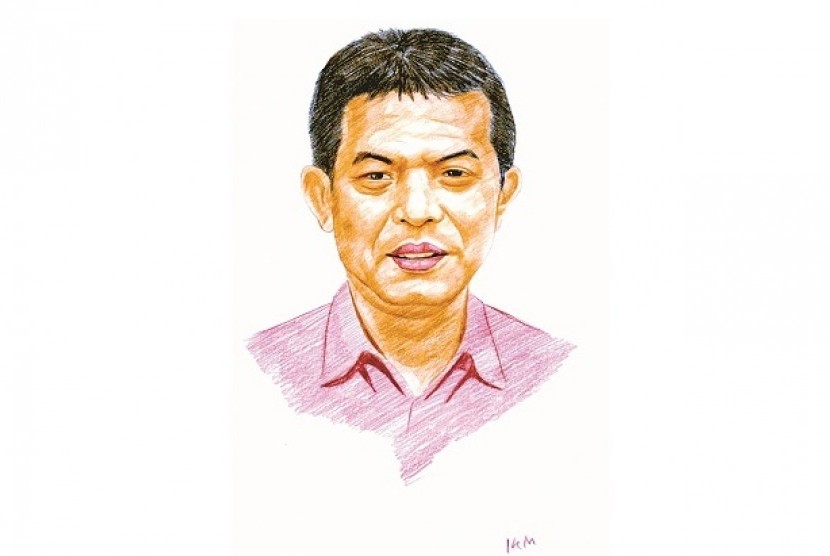By Ikhwanul Kiram Mashuri
Revolution in Middle East has grinded out authoritarian dictator supremacy. To be exact, these are the presidents who had been in command for years and defended their dominion by all means, including expulsion, execution and imprisonment of their own people.
True, they are presidents and not kings, rulers in republic countries and not monarchies. Their government systems are democratic and not hereditary. In other words, they ruled because their people voted for them by elections. But remarkably, they were able to dominate for dozens of years. Moreover, ones have planned to build an empire by passing on ones’ domination to ones’ within their own family.
In Tunisia, Zine el Abidine Ben Ali had been a president for more than 20 years and planned to leave his dominion to his wife, Laila Trabelsi. On January 14, 2011 he ran off to Saudi Arabia when huge demonstration raged in his country. Now he lives in exile carrying heavy accusations: manipulation of authority and corruption.
Next was Husni Mubarak. This Egyptian president of more than 30 years stepped down after massive demonstration in all parts of country. When he was still in command, he planned to pass on his power to his son, Jamal Mubarak. Now in his poorly ill condition, he is facing a trial with charges of: power abuse, killing and corruption.
Other ruler who was also crushed by revolution is Muammmar Qadafi. He ruled for more than 40 years in a non-monarchy country of Jamahiriyah Arab Libya. But, he rather likes to be called Malikul Muluk alias King of the Kings, and also planned to hand down his authority to his son, Saif al-Islam Qadafi. His destiny was so appalling as he was shot dead by revolution troops.
A better luck was undergone by Ali Abdullah Saleh. After a long demonstration and agitation to put him down from Yemen presidency he has occupied for 33 years, he finally stepped down in peace. He even got immunity from prosecution. In Syiria, President Bashar al-Assad who inherited power from his father, Hafez al-Assad, is now facing massive demonstration. His destiny and also Syiria still cannot be defined.
What is interesting, Middle East revolution has not yet touch the kings. Several Middle East observers termed what is happening in Arab world is king versus president or monarchy versus republic. Bahrain head-of-state was raged by several demonstrations. But those actions seemed unable to shake the monarchy of King Hamad bin Isa al-Khalifah.
He will still be able to attend Formula 1 grand prix in Bahrain International Circuit serenely. While other Gulf kings – King Abdullah bin Abdul Aziz of Saudi Arabia, Sheikh Khalifa bin Zayid of United Arab Emirates, Sultan Qaboos bin Said a-Said of Oman, Amir Sheikh Hamad bin Khalifa of Qatar, Amir Sabah al-Ahmad al-Jabir al-Sabah of Kuwait – they have much better fates.
The same experience was also faced by two Arab kings, King of Jordan Abdullah II and King of Morocco Mohammad VI. Both were quickly receptive to their people’s demands. Since the beginning of mass action in several Arab countries, they immediately amended their countries’ constitution to meet people’s aspiration.
The question now, why does revolution in Arab world on touch the presidents and not kings? The answer lies to impartial welfare. Gulf countries have long been known for their oil and gas opulence therefore they must ensure their people’s welfare.
Libya is also a rich country, but their people are poor. While Morocco and Jordan are lack of natural resources but their people live well. Moreover, the accusations to those overthrown presidents and their regime are almost the same: mismanagement and corruption. Both reasons have caused the nations’ deprive and suffer.
Revolutions in Middle East, have given us many lessons learned about the nature of power. That is to say, power has to be for the people. Public does not really care about type of political systems, it can be either republic/democracy or monarchy. Yet, what matters to people are justice assurance, welfare, education, health facilities, employment, security, old age benefits, and so on. Democracy system is not insignificant as long as it is conducted true and properly. Power by democracy must benefit all people.
(Indira Amaranti)



